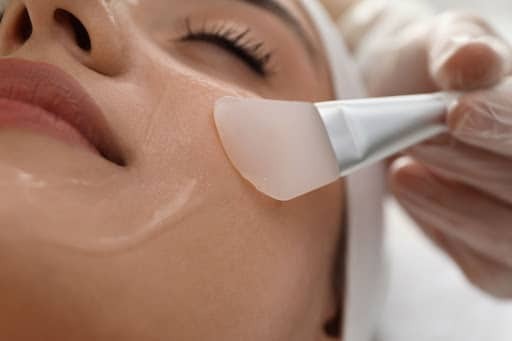Chemical peels are treatments done on the face, hands, and neck that remove the top layer of your skin. The removal of dead skin cells leaves you with softer skin with less visible damage. This treatment is effective and gives long-lasting results when you want to eliminate wrinkles, scarring, and skin discoloration. If you have a chemical peel appointment, it helps to prepare your skin for the treatment for better results. Here are three dermatology tips to help you prepare for a chemical peel:
Talk to a Dermatologist
Before you get a chemical peel, book an appointment with your dermatologist for a skin assessment to determine whether a chemical peel can help you correct your skin concerns. A skin examination also helps your doctor decide if you need a light chemical peel or more extensive treatment. Light chemical peels work for mild issues like sun damage and minor skin discoloration, while you may need a medium or deep chemical peel to clear wrinkles and deep scarring.
Discuss any skin medications you’re using with your dermatologist for guidance on what to avoid in preparation for the treatment. Dermatology specialists advise against using topical acne medications because they can dry out your skin, increasing your discomfort after treatment. Avoid using exfoliants a few days before your treatment, as they increase skin sensitivity, which could cause discomfort during a chemical peel. You should also avoid products containing strong acids that can thin the skin, potentially causing excessive peeling during this procedure.
Prepare Your Skin
Before your chemical peel, prepare your skin for the procedure using products recommended by your dermatologist. Some peels require you to be on a vitamin A or retinoids regimen in the weeks leading up to your treatment to strengthen the skin and enhance its healing capabilities. If you have sensitive skin, your dermatologist may recommend stopping your retinoid regimen a few days before the treatment. Boost your skin’s moisture levels by drinking enough water and using a hydrating moisturizer. Look for products containing hyaluronic acid as it draws moisture to the skin, helping with hydration. Properly hydrated skin has a lower risk of excessive dryness after a chemical peel.
Avoid Sun Exposure
Excessive sun exposure can increase your skin’s sensitivity, making it more vulnerable to hyperpigmentation and prolonged healing. Staying out in the sun for too long may also cause sunburns, which will likely postpone your chemical peel. Wear protective clothing like wide-brimmed hats and long-sleeve shirts, and apply broad-spectrum sunscreen whenever you go out on sunny days to avoid damaging your skin before the chemical peel.
Book a Chemical Peel with a Dermatology Clinic
Chemical peels are an effective treatment for rejuvenating your skin, and your results depend on the type of treatment you get and how you prepare for it. During your initial consultation with your dermatologist, they assess your skin to determine the appropriate chemical peel treatment. Once you schedule your chemical peel, your dermatologists will guide you through the steps to prepare for the treatment. Book a chemical peel with a dermatology facility for guidance on pre and post-treatment care to maximize your results.




